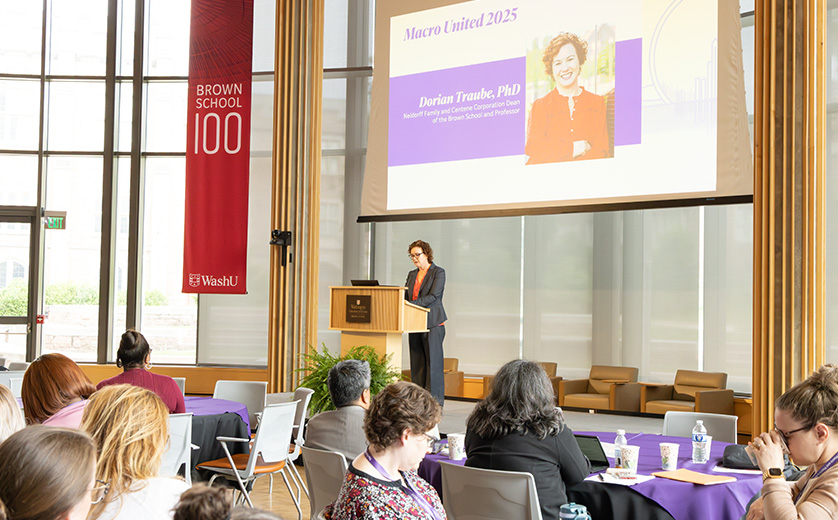From May 29 to 31, Washington University welcomed the 2025 Macro United Conference, the largest national gathering focused exclusively on macro social work faculty and practitioners. The event brought together representatives from 79 universities across 33 states for three days of collaboration, learning, and action.
Featuring more than 100 presentations on topics such as policy practice, systems change, and social justice, the conference provided a vital platform to elevate the visibility and impact of macro social work. It also offered a timely forum for practitioners and educators to discuss the growing challenges facing the profession.
“Macro United brings together leading social work faculty and macro practitioners from around the country who are making advances in research, teaching, and policy practice,” said Gary Parker, chair of the Macro United Conference planning committee. “At a time when the values of the social work profession are being challenged, this unique conference offers a space to reaffirm our commitment to equity, evidence, and community voice.”
Conference highlights included a plenary by Victor Manalo, a veteran political social worker with over 20 years of experience in academia and local government, and a keynote address by Rev. Bethany Johnson-Javois, President and CEO of Deaconess Foundation, and a passionate advocate for health and racial injustice.
Held under the theme, “The Future is Macro and Macro is Now,” the conference underscored the urgent need for macro social work leadership in addressing growing challenges to equity and inclusion.
The event served as a platform to exchange ideas and mobilize strategies that meet today’s complex social challenges head-on. Organizers emphasized that the need for bold, large-scale change cannot wait for the future — the time for action is now.
In her opening remarks, Dorian Traube, the Neidorff Family and Centene Corporation Dean of the Brown School, reflected on the significance of hosting the event in St. Louis.
“Our city grapples with the tensions and structural inequities that macro practitioners are called to navigate. There is so much wisdom in this room about how to lead with values in environments that may resist them, how to build coalitions across differences, and how to advance systemic change from the inside out. And that’s why at the Brown School we are proud to be a home for macro social work,” she said.
“For the Brown School, as with all of you in this room, we don’t see the policy angle, the macro considerations as incidental to our mission. They are essential to it,” she added.
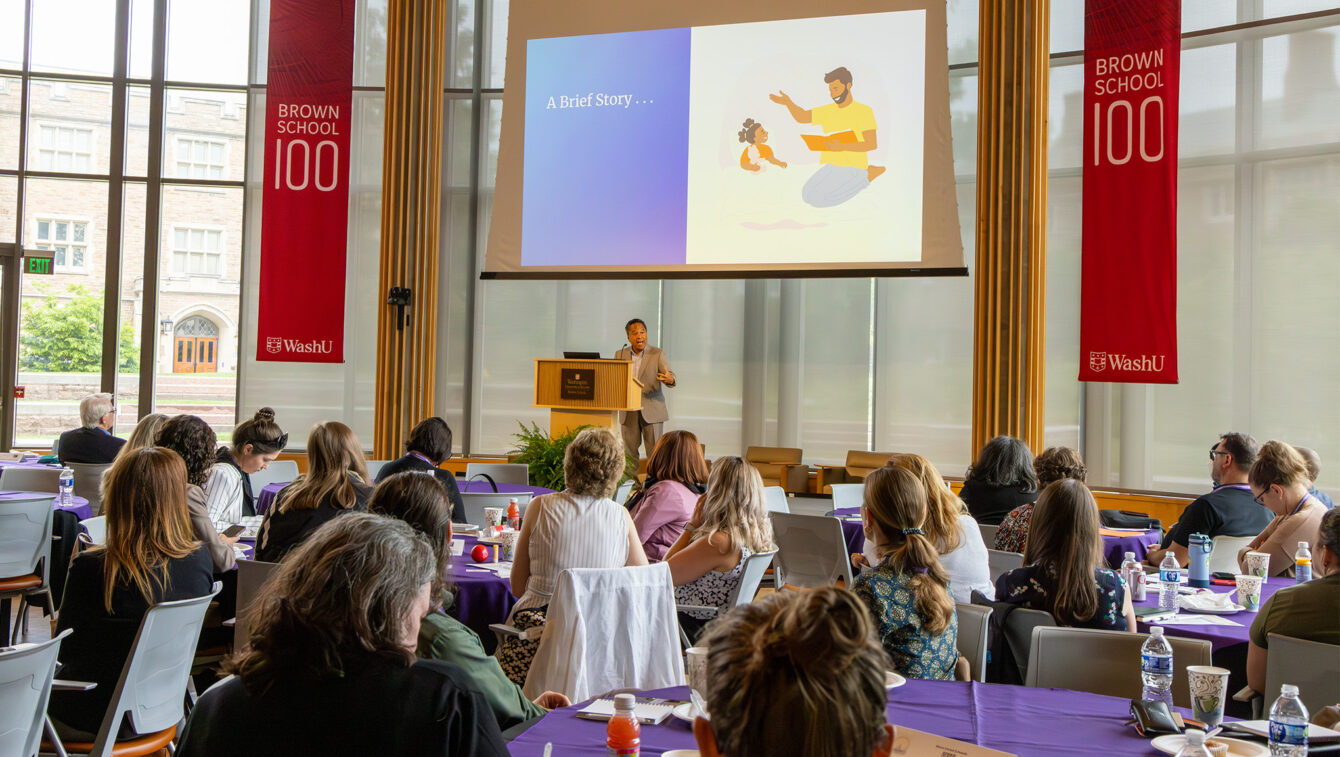
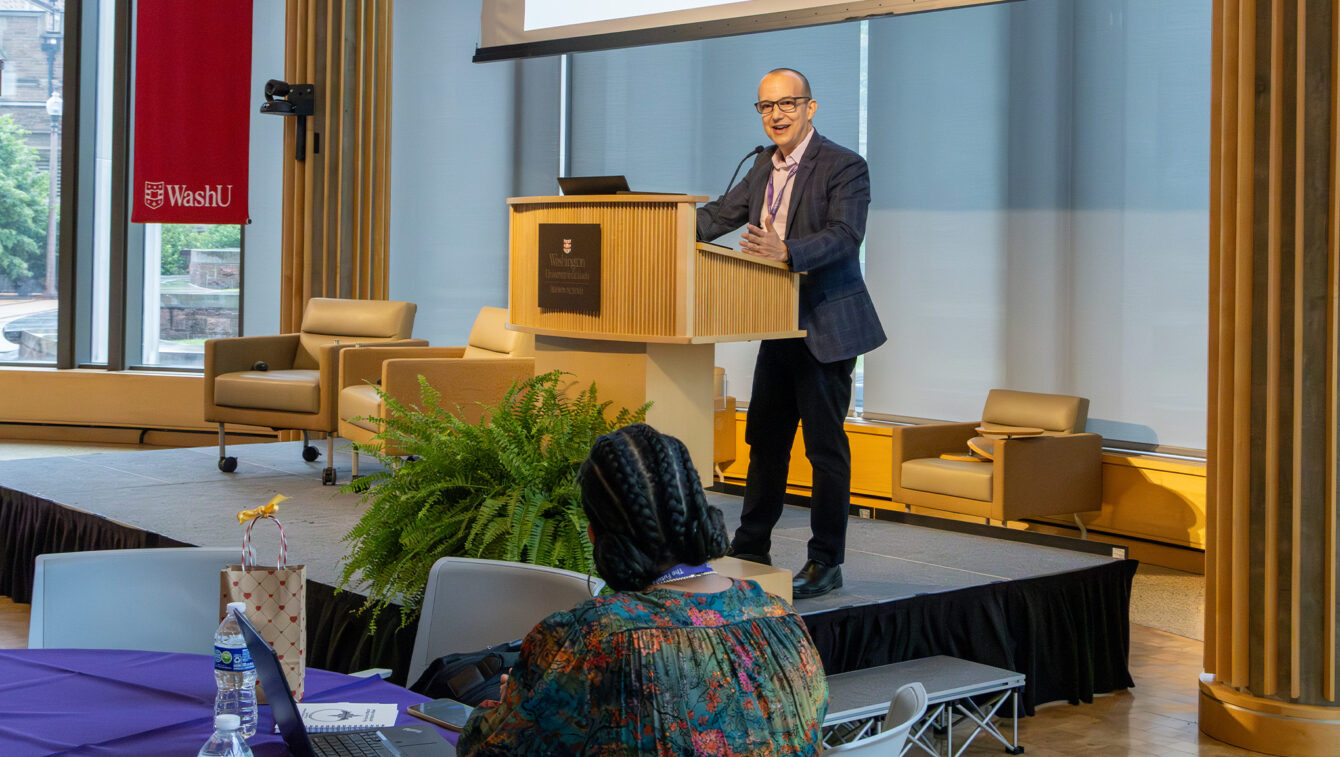
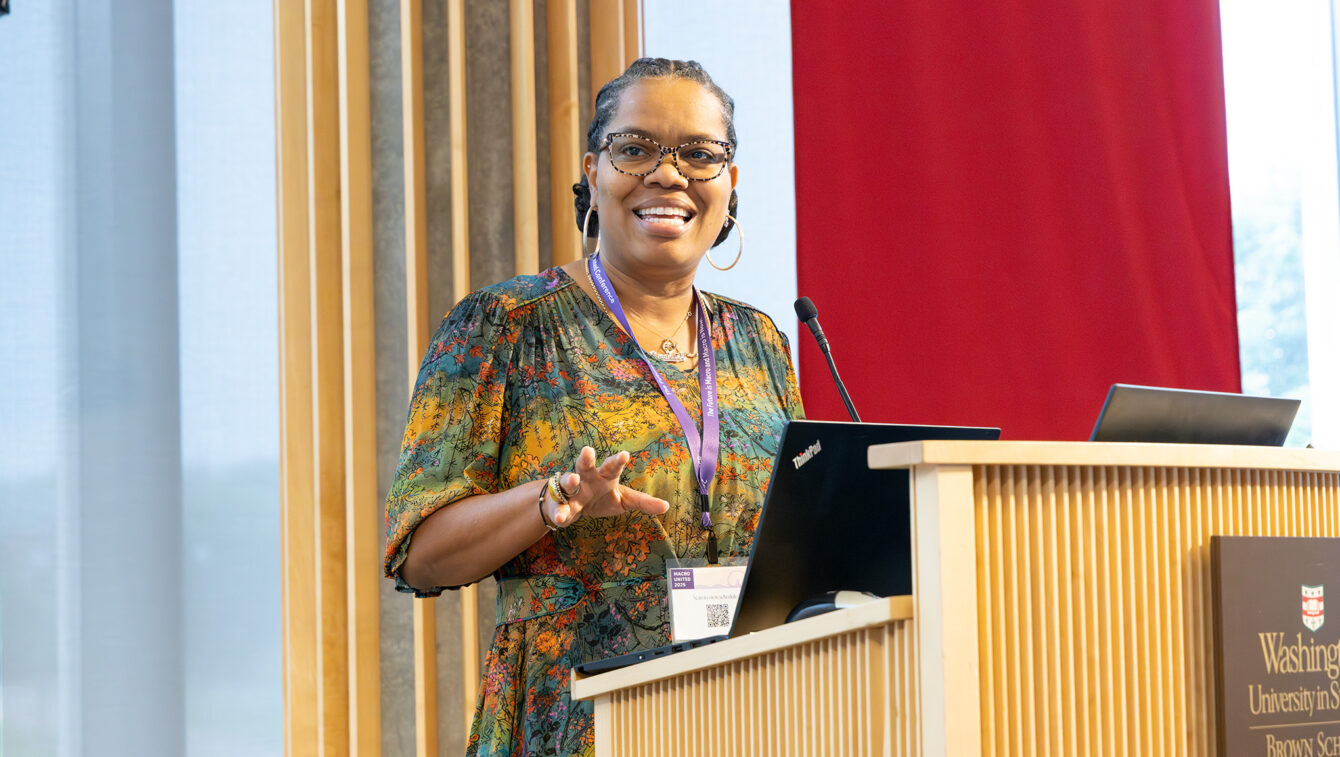
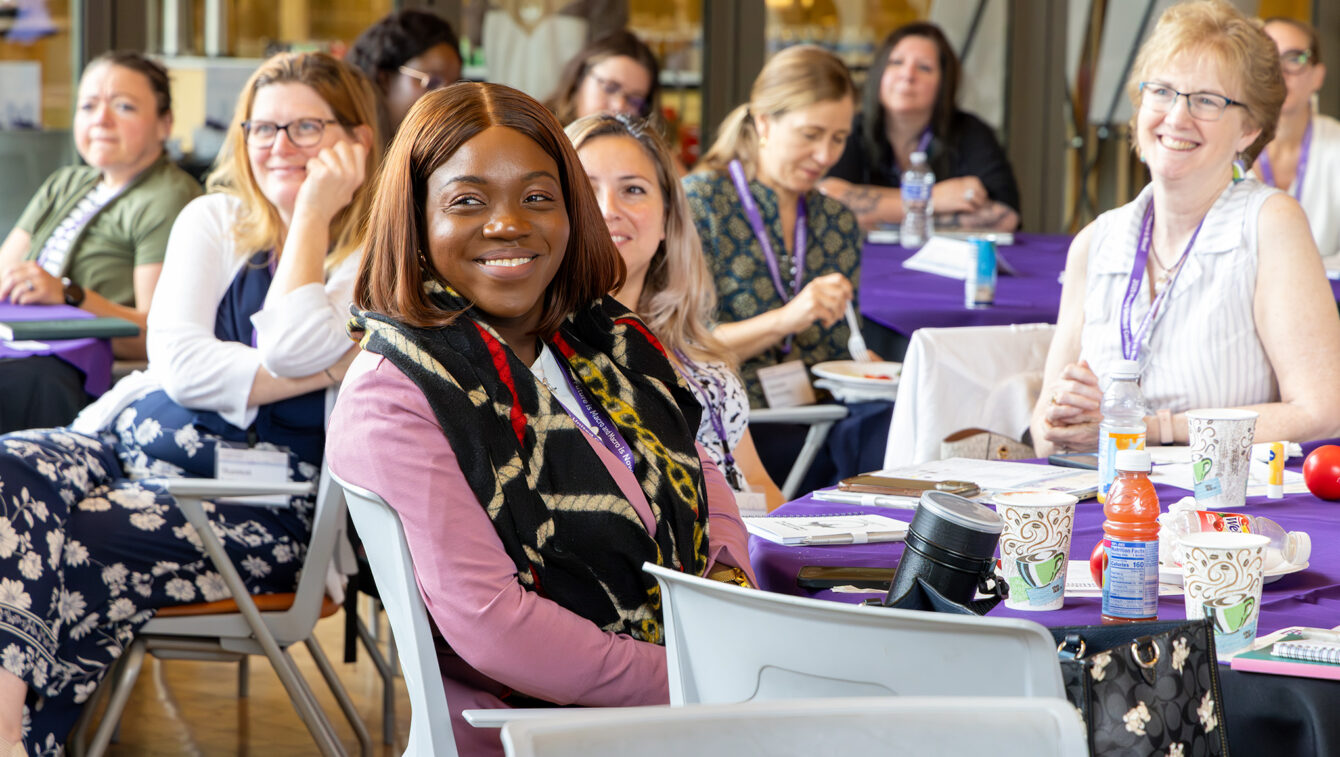
The conference was sponsored by a broad coalition of national organizations, including the Association for Community Organization and Social Action, Clark-Fox Policy Institute, Congressional Research Institute for Social Work and Policy, Grand Challenges for Social Work, Influencing Social Policy, #MacroSW, Macro Social Work Student Network, the Network for Social Work Management, Social Justice Initiative, and the Special Commission to Advance Macro Practice in Social Work.
